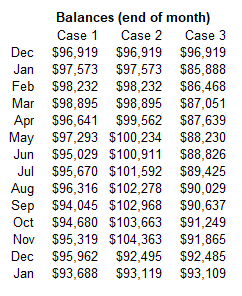ERD50
Give me a museum and I'll fill it. (Picasso) Give me a forum ...
...
No pension. $200k savings seems like enough, or it has worked for the past 3 years at least. We only spend about $35,000 a year so it will likely grow quite a bit.
gstillson, welcome to the forum. I'd suggest you start a new thread to get some feedback on your plan.
If those numbers tell the whole story, I must say that a 17.5% withdrawal rate would be considered extremely aggressive, based on history. I'm not sure what your measure of 'worked' is for the past 3 years, but I assume you need many more years for it to 'work', and future conditions will likely have some 3 year periods far worse than they have been the past 3 years.
- ERD50

